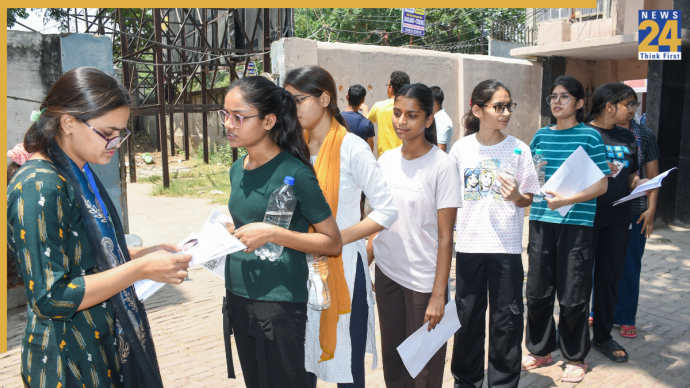– Naghma Mulla, Chief Executive Officer, EdelGive Foundation
– Gayatri Nair Lobo, Chief Executive Officer, ATE Chandra Foundation
India has over 3.2 million registered non-governmental organizations (NGOs). Several of these are organisations that are committed to drive positive change within our communities. As a sector, they also contribute significantly to India’s GDP (almost 2%). Despite the significant contributions non-profit organisations make to our economy, both in terms of employment and economic growth, they struggle to find the right talent or raise funds to meet their basic organisational needs. In recent times, Inter-Gen and Now-Gen donors have exhibited a significant shift, with 41% keen on strengthening ecosystems. This encompasses investments in non-profit capacity building, innovative giving approaches, collaborative platforms, specialised systems, and impactful storytelling for societal change. This trend also paves the way for broader philanthropic support in India’s NGO capacity building. Capacity building of NGOs is a largely under-discussed, yet important aspect for our nation’s development. It is a methodical approach focused on enhancing an organisation’s skills and resources, ultimately bolstering its ability to fulfil its mission efficiently and effectively. Through capacity building, NGOs can function not just as organisations, but as dynamic forces armed with strategies for lasting change.
Empowering grassroots initiatives
At the grassroots level, NGOs are often the lifeline for marginalised communities. Capacity building empowers these organisations to become self-sustaining, ensuring that their efforts have an enduring impact. It involves equipping them with skills in community mobilisation, needs assessment, and programme planning. By building local expertise and leadership, NGOs become true agents of transformation within their communities.
In this respect, NGOs, despite diverse missions, share fundamental capacities essential for organisation effectiveness. Effective leadership provides vision and strategy, guiding planned growth. Smooth operations drive strategies, managing resources for tangible results. Updated information technology is vital in today’s interconnected world. Proactive human resources form the backbone, with ongoing development as the cornerstone. Financial management in terms of budgeting, reporting and fund management is an essential part of development. Internal and external communication fosters cohesion and garners support. This can be achieved through consistent networking and partnerships that enhance resource management and broaden the reach of impact. Monitoring and evaluation of programs ensures accountability and progress in an organization. These universal capacities collectively empower NGOs,
Barriers to capacity building of NGOs
One of the key barriers is fragmented data that hinders assessing impact, advocating for funding, and designing effective capacity-building programs. Lack of data-driven insights hampers measuring true impact and advocating for vital funding in capacity-building, potentially limiting effectiveness. Furthermore, diverse expertise and contexts hinder a unified understanding of capacity building between funders and grantees. A notable barrier lies in the insufficient advocacy strategies for raising awareness about capacity building, further impeding its development in NGOs. Bridging these gaps is thus vital for productive discussions and resource allocation.
Non-Programmatic Funding as a solution for NGOs
For fellow funders, the message is simple, non-programmatic funding is a potent yet often overlooked catalyst for substantial improvements within NGOs. It provides crucial resources for capacity building, allowing investments in training, infrastructure, and technology, ultimately enhancing an organisation’s fundamental capabilities. This empowerment enables NGOs to innovate, adapt, and scale their initiatives effectively. By prioritising internal capacity, NGOs not only elevate programme quality and reach but also embark on new endeavours with confidence. Non-programmatic funding forms the cornerstone of sustainable growth, enabling NGOs to excel in their mission-driven endeavours and multiply their impact.
For example, The GROW Fund by EdelGive Foundation brought multiple funder organizations together to support 100 NGOs from all over India, working in different domains such as climate, animal welfare, education, gender rights, health, and poverty. Through a collaborative approach, training sessions were delivered around capacity building, thereby helping the NGOs identify their areas of improvement and take the necessary steps to act on them. Numerous discussions with these 100 NGOs have revealed that the capacity-building sessions not only facilitated a comprehensive understanding of their areas for improvement but also played a pivotal role in the internal restructuring of their organisational systems. This, in turn, contributed to organisational development, fostering aligned practices within the entity.
Enhancing the capacity of NGOs enables them to work more efficiently and effectively on the ground. With improved skills, resources, and infrastructure, NGOs can implement innovative solutions, mobilise communities, and deliver targeted interventions. This, in turn, translates into tangible outcomes such as improved healthcare, education, livelihood opportunities, and social inclusion. Moreover, these NGOs can champion policy reform for their initiatives, positively influencing socio-development objectives. Supporting the capacity building of NGOs holds immense potential for the entire nation, accelerating the achievement of socio-development goals and fostering a more equitable and participatory society.
Conclusion: Pathways for Capacity Building of NGOs
Capacity building isn’t a one-time affair; it’s a continuous, dynamic process that equips NGOs to thrive amidst shifting sands. It is imperative for all the key stakeholders in organisations to stay updated and adapt in accordance with the best practices in the sector along with continuous learning. In the journey towards capacity building, resources are key. NGOs must invest where it matters most, aligning resources with their key objectives and goals. Funders, too, play a pivotal role in this symphony of growth. Recognising that true capacity building requires sustained investment, funders must be open to channelling funds specifically for strengthening capabilities.
(The views expressed by the author are personal in nature and do not represent the views of News24)













